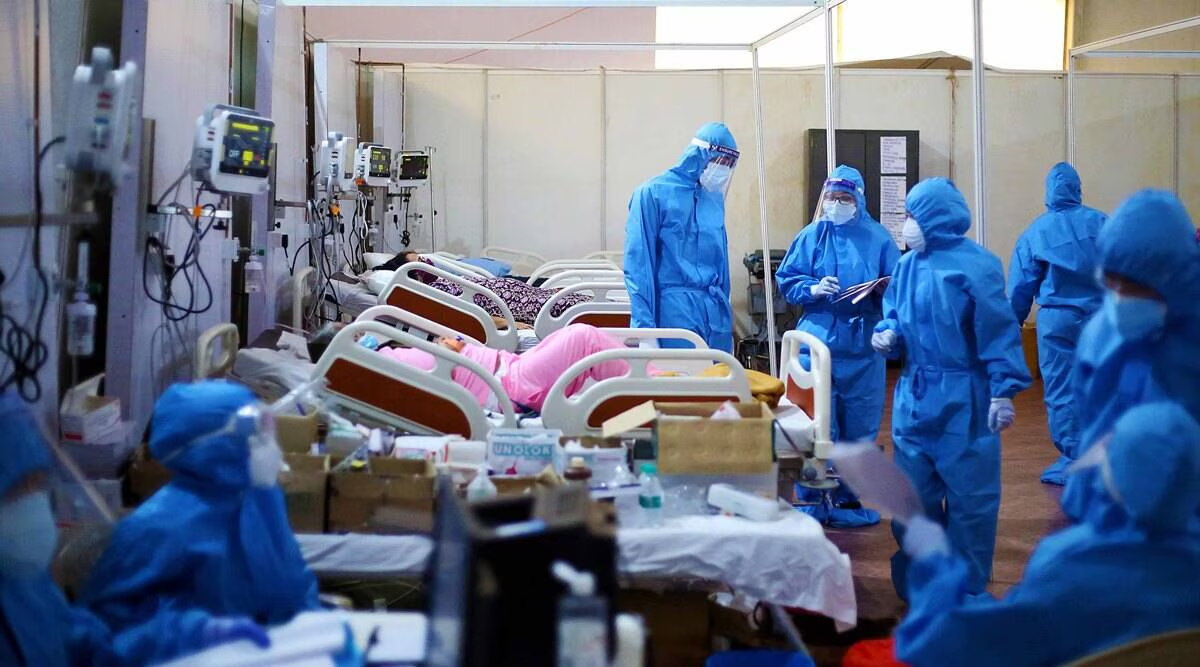New Delhi, 28 May 2025: As the world continues to live alongside COVID-19, new variants of the SARS-CoV-2 virus, including strains like XFG, NB.1.8.1, and LF.7, have begun to emerge and spread in several countries. These variants are raising concerns about increased transmissibility and potential resistance to existing vaccines. With rising case numbers in some regions, many are asking: Can vaccines still protect us against these evolving threats?
What Are These New COVID-19 Variants?
The new variants—XFG, NB.1.8.1, and LF.7—are sub-lineages of the Omicron family. According to preliminary reports:
XFG is known for its rapid transmission rate and multiple spike protein mutations.
NB.1.8.1 has shown signs of immune evasion, meaning it might partially escape the body’s existing immunity from vaccines or previous infections.
LF.7 appears to be spreading in clusters, raising early alarms due to its association with higher reinfection rates.
Despite these changes, there’s currently no evidence that these variants cause more severe disease. However, their increased ability to spread rapidly is enough to trigger concern.
Do Vaccines Still Offer Protection?
According to leading experts, yes—but with some important caveats.
- Vaccines Still Prevent Severe Illness
Dr. Soumya Swaminathan, former WHO Chief Scientist, explains, “While new variants may reduce the effectiveness of vaccines in preventing mild infections, most existing vaccines still offer strong protection against severe disease, hospitalization, and death.” This is especially true for those who’ve received booster shots. - Booster Doses Improve Immune Response
Newer mRNA booster shots, such as those updated by Pfizer and Moderna to target Omicron subvariants (like XBB.1.5), have shown improved efficacy against emerging strains. While these boosters weren’t designed for XFG or NB.1.8.1 specifically, cross-protection is possible.
Dr. Paul Offit, a vaccine expert from the University of Pennsylvania, states, “Boosters train the immune system to recognize a broader array of viral features, not just one variant. This means there’s still some level of protection, even when the virus mutates.”
What About Vaccine Breakthrough Infections?
Breakthrough infections—where vaccinated individuals still get infected—are more common with variants like Omicron and its offshoots. However, in most cases, these infections are mild or asymptomatic. This aligns with the real goal of vaccination: to prevent serious illness, not necessarily to eliminate all infections.
Dr. Gagandeep Kang, a renowned Indian virologist, adds, “Expecting vaccines to prevent all infections is unrealistic with respiratory viruses. What we’re seeing is what we expected—mild reinfections, but strong protection against hospital overload.”
The Role of Hybrid Immunity
People who have both natural immunity from past infection and vaccine-induced immunity (known as hybrid immunity) may have a broader and more robust defense against newer variants. A growing number of studies show that hybrid immunity can offer better protection against reinfection and severe illness, even as the virus mutates.
What Are Vaccine Makers Doing About It?
Manufacturers are already working on next-generation COVID-19 vaccines that offer broader protection. These include:
Multivalent vaccines: Target multiple variants simultaneously.
Pan-coronavirus vaccines: Designed to protect against a range of coronaviruses, not just SARS-CoV-2.
Nasal vaccines: These could block infection at the site of entry, potentially reducing transmission.
Pfizer, Moderna, and other biotech firms are expected to release updated boosters in late 2025 tailored to circulating strains.
Experts Urge Vigilance, Not Panic
Health experts stress that while new variants will continue to emerge—as is typical with RNA viruses—vaccines, boosters, and public health measures still provide a strong line of defense.
Stay up-to-date with booster shots, especially for older adults and high-risk groups.
Continue testing and masking in high-transmission settings.
Report symptoms early, especially if you have underlying conditions.
Vaccines are not obsolete in the face of new COVID-19 variants. While mutations like those in XFG, NB.1.8.1, and LF.7 may slightly reduce vaccine effectiveness in preventing infection, they do not erase the strong protection vaccines offer against serious outcomes.
The virus is evolving—but so is science.







